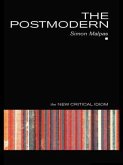This study traces anarchist discourse through the novels of Thomas Pynchon. Not only does Pynchon create specific anarchist and crypto-anarchist characters and agencies, but he also treats with suspicion many state-sponsored institutions that serve to maintain and regulate social order. This anti-authoritarian stance is reproduced on a structural level: Pynchon's formal techniques correspond to an anarchist aesthetic which reflects a sustained skepticism toward efforts to map mastering codes onto the texts. While Pynchon frequently invokes a concept of anarchism as a powerful mechanism for social engineering, as a utopic horizon, and as a valued political philosophy, he is also wary of fully endorsing an anarchist position because he recognizes such a position to be open to any number of violent corruptions and betrayals. Pynchon teases out the possibilities that a progressive anarchist stand may proffer, but also makes a serious contribution to anarchist discourse by amplifying and interrogating the flaws inherent in anarchist theory.







